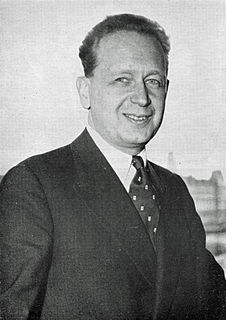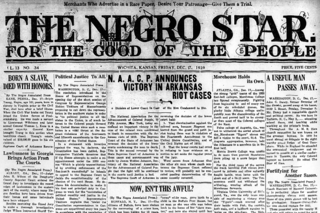Related Research Articles

Dag Hjalmar Agne Carl Hammarskjöld was a Swedish economist and diplomat who served as the second Secretary-General of the United Nations. As of 2021, Hammarskjöld remains the youngest person to have held the Secretary-General post, having been only 47 years old when he was appointed in 1953. His second term was cut short when he died in the crash of his DC-6 airplane in Northern Rhodesia while en route to cease-fire negotiations during the Congo Crisis. He is the only person in history to be awarded a Nobel Peace Prize posthumously.

The Governor-General of the Union of South Africa was the highest state official in the Union of South Africa between 31 May 1910 and 31 May 1961. The Union of South Africa was founded as a self-governing Dominion of the British Empire in 1910 and the office of governor-general was established as the representative of the monarch. Fifty-one years later the country declared itself a republic and the historic link with the British monarchy was broken. The office of governor-general was abolished.

The Liberal Party of South Africa was a South African political party from 1953 to 1968.

2 Squadron is a squadron in the South African Air Force which was formed in 1940. The squadron has a long history, having been involved in every single combat action in which the SAAF has taken part. During the Second World War it made a name for itself in the battles for East Africa, before distinguishing itself in North Africa as part of the Desert Air Force, and later in Italy.
Liberalism in South Africa was not formally organised until 1953, although there was some liberal tradition in parties present at the time. This changed in 1953 with the formation of the anti-Apartheid Liberal Party of South Africa, which was multi-racial. A second liberal tradition started in 1959 with the forming of the Progressive Party.

Manilal Mohandas Gandhi was the second son of Mohandas Gandhi and Kasturba Gandhi.

The Bantu Education Act, 1953 was a South African segregation law which legalized several aspects of the apartheid system. Its major provision was enforcing racially separated educational facilities. Even universities were made "tribal", and all but three missionary schools chose to close down when the government would no longer help support their schools. Very few authorities continued using their own finances to support education for native Africans. In 1959, this type of education was extended to "non-white" universities and colleges with the Extension of University Education Act, and the University College of Fort Hare was taken over by the government and degraded to being part of the Bantu education system. It is often argued that the policy of Bantu (African) education was aimed to direct black or non-white youth to the unskilled labour market, although Hendrik Verwoerd, at the time Minister of Native Affairs, claimed that the aim was to solve South Africa's "ethnic problems" by creating complementary economic and political units for different ethnic groups.

General elections were held in South Africa on 15 April 1953. The elections consolidated the position of the National Party under D. F. Malan, which won an absolute majority of the 156 elected seats in the House of Assembly. The United Party under JGN Strauss lost several seats, and suffered several splits after the election.
The South African Labour Party, was a South African political party formed in March 1910 in the newly created Union of South Africa following discussions between trade unions and the Independent Labour Party of Transvaal, was a professedly democratic socialist party representing the interests of the white working class.
The system of racial segregation in South Africa known as apartheid was implemented and enforced by many acts and other laws. This legislation served to institutionalise racial discrimination and the dominance by white people over people of other races. While the bulk of this legislation was enacted after the election of the National Party government in 1948, it was preceded by discriminatory legislation enacted under earlier British and Afrikaner governments. Apartheid is distinguished from segregation in other countries by the systematic way in which it was formalised in law.

Seventeenth Expeditionary Air Force is a numbered air force of the United States Air Force located at Ramstein Air Base, Germany. The command served the United States Air Forces in Europe during (1953–1996) and United States Air Forces Africa during 2008–2012. Upon reactivation on 1 October 2008, it became the air and space component of United States Africa Command. In this capacity, Seventeenth Air Force was referred to as U.S. Air Forces Africa (AFAFRICA). 17 AF was reformed in April 2012 to become the 17th Expeditionary Air Force, sharing a commander and headquarters with the Third Air Force.
The New Zealand national cricket team toured South Africa from October 1953 to February 1954 and played a five match Test series against the South Africa national cricket team. South Africa won the Test series 4–0. South Africa were captained by Jack Cheetham and New Zealand by Geoff Rabone.

The Korea Medal is a military campaign medal which was instituted by the Union of South Africa in 1953. It was awarded to volunteers of the Union Defence Forces for service in Korea during the 1950-1953 Korean War.
The Union Federal Party was a white liberal South African party that broke away from the United Party after the 1953 election. It never gained any seats in Parliament, and ceased to exist in 1960.

The Federation of Rhodesia and Nyasaland was a colonial federation that consisted of three southern African territories—the self-governing British colony of Southern Rhodesia and the British protectorates of Northern Rhodesia and Nyasaland—between 1953 and 1963.
The Coloured vote constitutional crisis, also known as the Coloured vote case, was a constitutional crisis that occurred in the Union of South Africa during the 1950s as the result of an attempt by the Nationalist government to remove Coloured voters in the Union's Cape Province from the common voters' rolls. It developed into a dispute between the judiciary and the other branches of government over the power of Parliament to amend an entrenched clause in the South Africa Act and the power of the Appellate Division to overturn the amendment as unconstitutional. The crisis ended when the government enlarged the Senate and altered its method of election, allowing the amendment to be successfully enacted.

The Negro Star was an African-American newspaper created by Hollie T. Sims that ran from 1908 to 1953. Sims founded the paper in Greenwood, Mississippi, but moved it to Wichita, Kansas, in 1919 as a result of racial hostility. Bringing national news to Wichita, the Star was one of few newspapers that provided African Americans news and access to African-American updates during the early to mid-1900s.
The Baton Rouge bus boycott was a boycott of city buses launched on June 19, 1953 by African-American residents of Baton Rouge, Louisiana who were seeking integration of the system. They made up about 80% of the ridership of the city buses in the early 1950s but, under Jim Crow rules, black people were forced to sit in the back of the bus, even when the front of the bus was empty. State laws prohibited black citizens from owning private buses outside the city systems.
References
- ↑ Rosenthal, Eric (1978). Encyclopedia of Southern Africa.
| | This article about a politician from the Republic of South Africa is a stub. You can help Wikipedia by expanding it. |